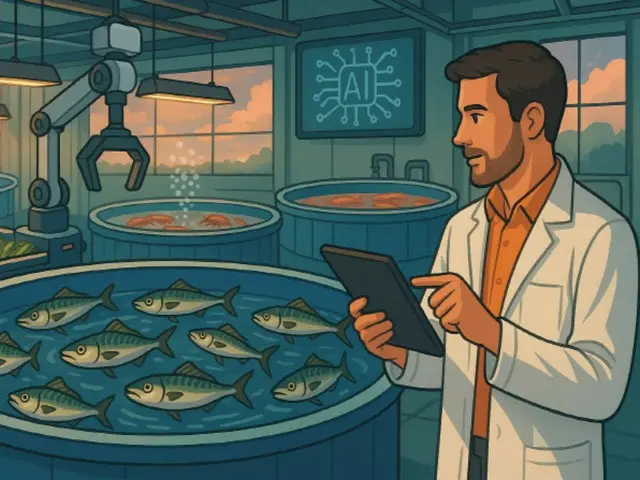The venture capital (VC) industry is showing increasing interest in startup technologies that can secure food supplies for the future. According to the Korea Agro-Fisheries and Food Trade Corporation on the 15th, the average consumer price of mackerel under refrigerated storage standards is
As of this day, the price was 4,894 won per fish, up 33.4 percent from the same month last year (3,669 won).
This is likely to have a small impact on consumer prices. It's not just the heatwaves this year. Fisheries production is being affected by increasingly severe weather disasters. For example,
According to the Fisheries Production Trends Survey for 2024 by the Fisheries Agency, mackerel production last year was 134,800 tons, a sharp decline of 17.4% compared to the previous year.
In the midst of this, Megaplan has succeeded in developing Japan's first indoor mackerel farming spawning technology for raw mackerel for sashimi, and is attracting attention from the industry.
Using smart farming technology that utilizes artificial intelligence (AI), Mega Plan can raise sufficient quantities of mackerel indoors.
They also hold patents for technology that allows spawning throughout the year or at any time based on control. One VC representative said, "Mackerel are violent and very active, so indoor farming is completely unthinkable.
"If it becomes possible to farm fish indoors, not only will it be less susceptible to the effects of climate change, but it will also eliminate the problem of microplastics, which is not the case when fish are caught in the ocean," he said.
Thanks to the "K-food" boom, land-based seaweed farming technology is also attracting attention. Second Seaweed Farming, a startup that has developed a land-based seaweed farming system,
Ocean was selected as a recipient of the Small and Medium Enterprise Agency's Technology Development Program for Startup Growth, TIPS, and was also awarded the Antler Korea and The
The company has attracted investment from venture capital firms such as Rakuten Ichiba and Rakuten Ichiba. It has developed a solution that uses AI to learn seaweed cultivation data and measure the growth stage by time period.
In addition, AD Fisheries, which has smart aquafarm technology specialized in shrimp farming, and Moina, a marine food organism (a microorganism that serves as food for young fish and shrimp in aquaculture), are also involved.
Various fisheries tech startups, such as Bioshan, which mass-produces and improves the survival rate of early marine organisms, are being selected by VCs.
The Ministry of Oceans and Fisheries is also paying attention to changes in the ecosystem of fisheries due to climate change.
In order to transition to deep tech and foster related companies, the government plans to invest a total of 30.25 billion won in deep tech technology development in the marine and fisheries sectors from this year to 2028.
However, some point out that the domestic indoor aquaculture and fisheries-related industries are too fragmented for venture capitalists to actively invest.
Another VC industry source said, "Indoor aquaculture and other seafood production startups are too fragmented and it's difficult to scale them up through investment.
"It is difficult for the Ministry of Agriculture, Food and Rural Affairs to invest in the fisheries industry, and the fund created by the Ministry of Marine Affairs is small in scale," he said, highlighting the challenges.
2025/07/16 10:44 KST
Copyrights(C) Edaily wowkorea.jp 88

